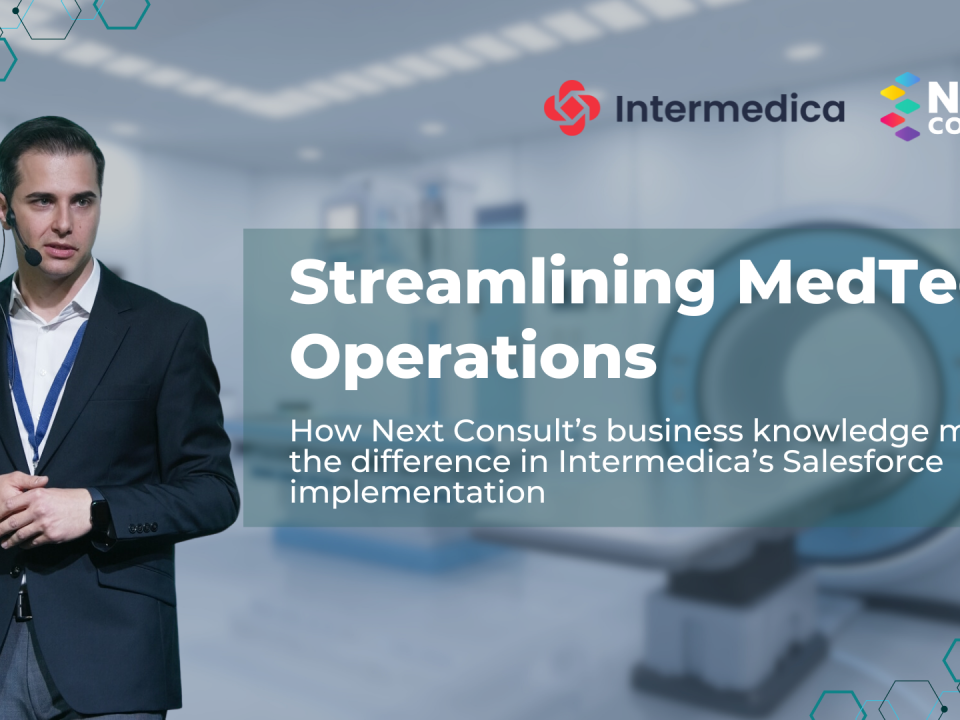
NIK: If we don’t track our resources, we risk working at a loss
NIK is using an ERP system to easily manage its projects. FinancialForce, which is based on the Salesforce platform, automates the process of managing resources, contracts, and finance and accounting
Read in Bulgarian at digitalK.bg
The growth of any business requires change, and this can turn into a serious challenge if the entire process is not managed effectively. It is exactly during this stage of their development that we meet the NIK group of companies, which are established in Bulgaria and focus on developing and implementing intelligent precision farming technologies. They can pride themselves on two decades of experience, clients in 20 countries, branches in a few European countries, and in South Africa. In this regard, the company realizes that to continue to successfully offer its services for automation and modernization of the agriculture sector, they need an ERP solution that can ease and optimize all activities related to managing its projects.
So far, NIK has been using various software, including CRM, BI, and an accounting system. The good synergy between these different solutions has been allowing the planning of resources to happen without an ERP. “However, at some point, we saw that there was a problem with all these integrations. We decided it was time to think about an ERP and started doing our research 5-6 years ago”- recounts Ivo Kumanov, founder, and CEO of the NIK group of companies. That is when the journey of finding the right solution and supplier to fit their needs begins.
The journey
To begin with, the company conducts thorough market research, which lasts around a year, and ends up choosing FinancialForce as a solution, which is based on the Salesforce platform, and Next Consult as a partner for its integration. According to Kumanov, one of the key advantages of the system is that it is not server-based, but а cloud-based solution. Therefore, you are always using the latest version on the market, and the newest functionalities and do not need to update the system every year or couple of years.
Furthermore, NIK chooses Next Consult as a partner because they see them not only as a technology company but as consultants, who help them organize their processes effectively in the new system.
Founder, and CEO of the NIK group of companies
“After having had conversations with dozens of companies, I concluded that many implementations have failed because of ill-conceived processes. I am grateful to Next Consult in this regard as if they see a process that is not functioning well, they let us know. They explore the processes in-depth, and we get a 2-in-1 service - consulting on how we can optimize the business and advice on how we can automate a specific process. What Next Consult is doing for us, is similar to what we are doing for our clients in the agricultural sector. This is also why our approach fits well when working together.”,
- adds Kumanov.
Project execution
The project began way before the actual integration of the new software solution. First, they had to define the goals of the company, the key users of the platform, and their roles, and establish clear communication about why they are heading in the direction of integrating an ERP system. In this way, the company’s team starts building a blueprint or in other words the plan of what this new software will look like for them.
“We cannot disregard the fact that the implementation of an ERP creates discomfort for the whole company. Yes, there is also the belief that this will lead to better days but there is also the doubt - if and when exactly this will happen. This process requires a strong commitment on behalf of the management and if someone thinks that the CEO or owner of a company can just integrate an ERP without their active involvement – then they are risking failure to a big extent” – emphasized Kumanov. According to him the participation of the management is extremely important as the final decision of which process needs to be changed lies within their expertise. Otherwise, you can end up automating activities that do not happen in an optimal way.
Deliberately the process of creating a blueprint takes NIK around one year and was divided into two parts: integrating FinancialForce and Salesforce, as for Kumanov the first software is not complete without the whole Salesforce platform. Therefore, the company turns to Next Consult, whose experts help them clarify the details. Subsequently, the stages of implementation of the platform in the span of one year in its different branches in other countries are thoroughly described. According to the expert, this one-year deadline could be shortened, but in this way a company risks ill-conceiving a process and repairing it later would be difficult.

The functionalities
FinancialForce is developed and based on the Salesforce platform and primarily is an ERP solution, targeting companies in the professional services sector. Therefore, its key functionalities are oriented toward the management of resources, contracts, accounting, etc. This allows for theproject profitability to be easily determined – something that is harder to do with regular ERP systems, explains Ivo Dreshkov, Partner Operations at Next Consult.
According to him, the platform allows for easy synchronization of sales with critical business functions like accounting, finance and back-office, data analysis in real-time and opportunities for the management to make informed decisions. FinancialForce also automates the processes of offering, invoicing, resource planning, subscription management, and more. In Kumanov’s case, on the other hand, the benefits of the CPQ (configure price quote) functionality are evident - it allows for personalized offers to be made, combining different products and services, and following confirmation from an employee, the system automatically generates the necessary accompanying documents to the contract.
“One of our offers can contain different product lines or services which very often have different product managers. For example, with three different product lines, for which we need to increase the discounts, we need approval from different levels within the company. The software allows for something which impressed us very much – when you go over the limits it sends an email to the three different managers, who can then officially make a confirmation with a simple “OK” reply and the system then issues an offer. After that, we have thorough tracking regarding who approved it, when it was issued, and what are the profits or losses from the actual deal, which is valuable for us” – explained the expert.
Challenges and advice
Just like any other project this one also has its challenges. Kumanov admits that he expected the company to face some difficulties during the actual implementation phase. It turns out that the development of the blueprint is a challenge that required a lot of effort on behalf of the organization in order to overcome it. The creation of the plan required many employees from various teams to sit down and work together to achieve consensus on a given process, so it can be reorganized in the system.
“At the end of the day, we realized that this is the moment to reconsider our processes and reorganize them. I doubt we would have done so if we did not need a blueprint for the ERP integration. This was a refresh for the company” – shares Kumanov.
In this regard, the expert recommends that already at the onset of such a project, companies pick key users whose main task will be the integration and for this to be their main priority. Also, according to him, it is important to have very clear goals for these key users so they know exactly what is expected from them, why, and what they will achieve when the project is successfully completed.
The benefits
In practice, the functionalities of FinancialForce allow you to gather clearer and more accurate information about the dynamics of the business at a given moment in time. Among the key benefits of this integration are timely invoicing, collection of receivables, predictability of orders to suppliers and expected profits, as well as higher efficiency of employees.
According to Kumanov the ERP platform aids the planning of activities, which is a key asset nowadays considering the difficulties along the supply chain. To illustrate this, he gives the example that now the company is preparing orders which are placed for next spring and summer, which would not be possible without accurate tracking of offers and opportunities.
„Our plans are for the business to be increasingly developing in the direction of services. What we want from the system is, already at the operational level, for us to be clear on which project is a winning one and what resources it requires, because we have a big variety of projects. For example, one of them is the construction of an irrigation system of 10 thousand acres to be managed with artificial intelligence. If we do not plan the project well and its execution, if we don’t track our resources, we risk working at a loss. Not to mention the inability to grow our business at the speed that we had aimed for, as well as in the instances where we need to decide between branches in different countries – which resources to allocate to which branch”. – emphasized Kumanov.
He is convinced that all this management would be way more complex without the right software and that the company has made the right choice in this regard.





